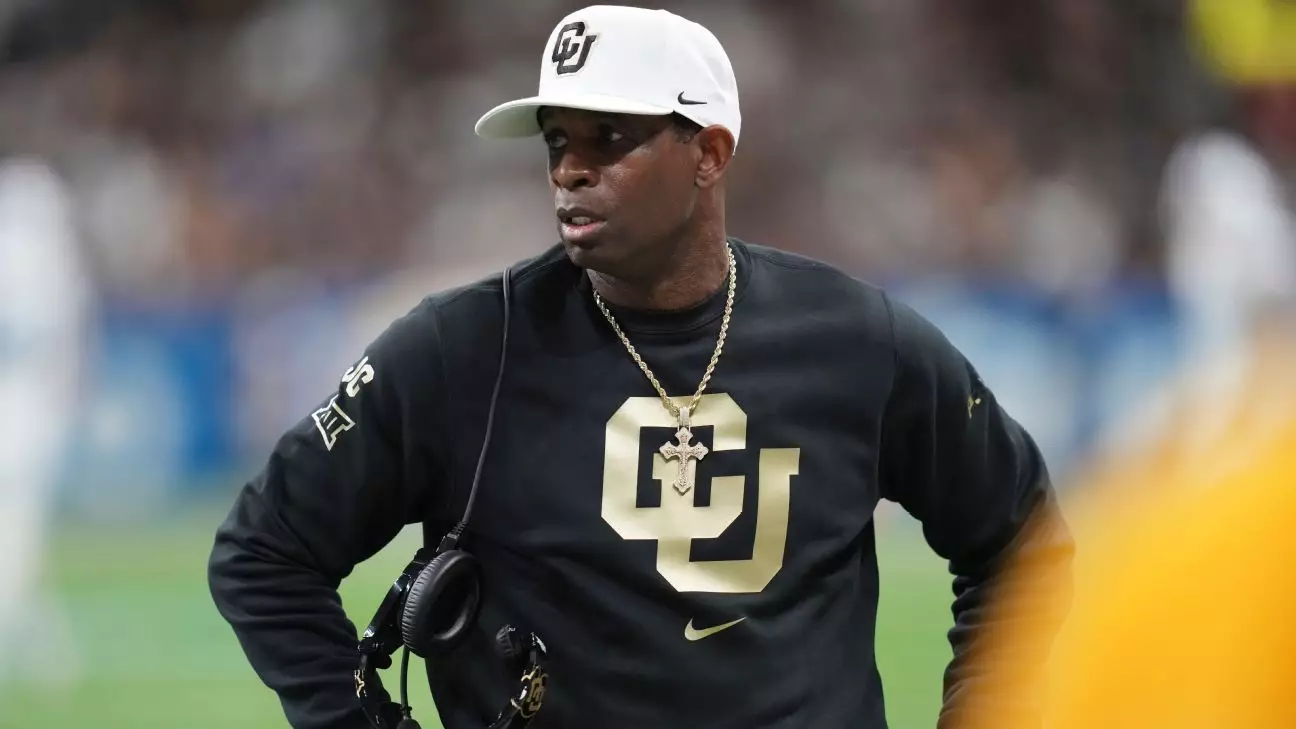Deion Sanders, often hailed as one of the most electrifying athletes in football history, recently turned down a golden opportunity to possibly return to the NFL. The allure of coaching the Dallas Cowboys—one of the most storied franchises in the league—was on the table, but Sanders decided to remain at the University of Colorado. This decision underscores a broader theme in the world of sports: the contrast between the highly commercialized realm of professional football and the more grassroots-oriented environment of college athletics.
Despite the Cowboys’ interest, it appears that the pressures and demands of the NFL have begun to feel overwhelming for Sanders. On his recent talk show, “We Got Time Today,” he expressed clear reservations about coaching at that level, suggesting that the modern NFL practices, which tend to be hyper-competitive and exceedingly intense, are not in line with his coaching philosophy. This perspective not only highlights Sanders’ introspection as a coach but also serves as a critique of the current state of professional football.
During his conversation with Troy Aikman, a fellow member of the iconic 1990s Cowboys team, Sanders strategically compared the Falcons’ regime during his playing days with the current atmosphere in NFL practice facilities. While reminiscing about their rigorous training sessions, he seemed to lament how the intensity of modern practices has evolved. Sanders expressed, “I couldn’t coach pro ball… that would be tough.” This candid admission reveals an important aspect of his character: an unwavering commitment to the wellbeing of players—both on and off the field.
Notably, Sanders’ nostalgic views speak to a larger issue in sports today: the evolving nature of training regimens and the emphasis placed on performance over mental and physical health. His thoughts resonate particularly amongst coaches who prioritize player welfare, driving a wedge between the philosophies that govern college football as opposed to the professional ranks.
Sanders has established himself as a discerning leader during his tenure at Colorado, where his record stands at 13-12 over two seasons. His ability to cultivate talent, as evidenced by the rise of players like Travis Hunter—a Heisman Trophy winner—highlights his success at the collegiate level. Interestingly, Sanders previously expressed disinterest in pursuing opportunities in the NFL, a stance he reiterated in a 2022 interview with “60 Minutes.”
The coaching landscape is rife with varying degrees of success and challenges, yet Sanders has chosen to invest in the development of young athletes who are just beginning their journeys. His dedication to fostering talent is laudable, particularly in a context where many coaches prioritize immediate results over long-term growth.
Despite the allure of Sanders’ persona and capabilities, the Dallas Cowboys opted for an in-house strategy, hiring Brian Schottenheimer as their head coach. This decision raised eyebrows among former players and fans alike, some of whom felt Sanders would have been a perfect fit to galvanize a team that has struggled to find its footing in recent years. Aikman’s reflections on the matter suggest there is considerable interest in Sanders’ leadership style, which is characterized by a commanding presence and confidence that he would bring to the organization.
Such conversations around coaching vacancies highlight the intricate dance of leadership within sports organizations and raise the question of why some outstanding candidates are overlooked. Aikman’s mention of the discontent among former teammates regarding Jerry Jones’ choices underscores the significant implications of leadership dynamics, not just for the head coach but for the entire team culture.
As Sanders continues his journey at Colorado, his choice to remain in college football reflects a broader paradigm shift in coaching careers. It reminds us that not every talented player or coach seeks the spotlight of high-stakes professional environments; some prefer the more nurturing, developmental roles that collegiate athletics can offer. The conversation surrounding Sanders and the NFL also serves to highlight the ongoing debate about coaching philosophies and priorities in today’s world, leaving fans and analysts alike pondering the future of leadership in both college and professional sports.


Leave a Reply